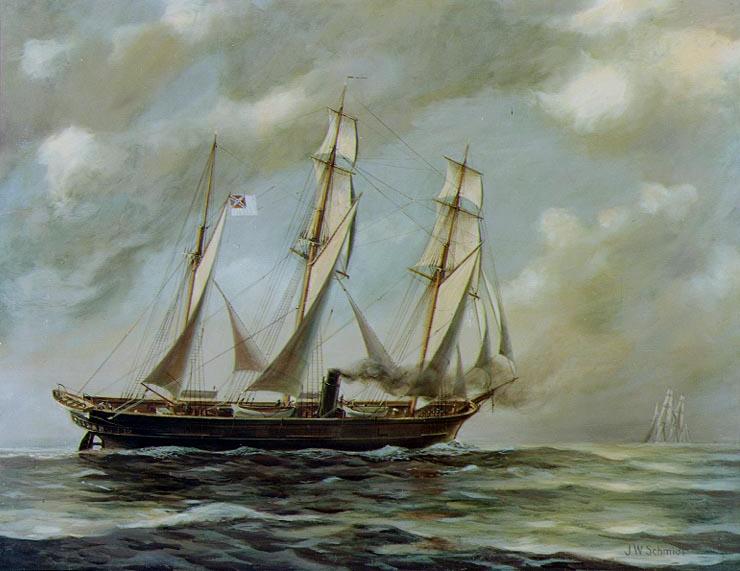But most significant of all was the attitude assumed by the Federal Government in dealing with the secession of the South. Long before that secession some of the best observers had clearly pointed out how the influence of climate, and much more the special type of industry and character which slavery produced, had already created a profound and lasting difference between the North and the South. Both Madison and Story had foreseen that the great danger to the United States was the opposition between the Northern and Southern interests. Calhoun was so sensible of the difference that he proposed the establishment of two presidents, one for the free, and the other for the slave States, each with a veto on all national legislation. Guizot and Tocqueville had both distinctly recognised the same truth. Though language and religion were the same, and though race was not widely different, two distinct nations had grown up, clearly separated in their merits and their defects, in character, manners, aspirations, and interests.
After the election of President Lincoln the long impending disruption came. The Southern States proclaimed the right of nationalities, demanded their independence, and proved their earnestness and their unanimity by arguments that were far more unequivocal than any doubtful plebiscite. For four long years they defended their cause on the battle-field with heroic courage, against overwhelming odds, and at the sacrifice of everything that men most desire. American and indeed European writers are accustomed to speak of the heroism of the American colonies in repudiating imperial taxation, and asserting and achieving their independence against all the force of Great Britain. But no one who looks carefully into the history of the American revolution, who observes the languor, the profound divisions, the frequent pusillanimity, the absence of all strong and unselfish enthusiasm that were displayed in great portions of the revolted colonies, and their entire dependence for success on foreign assistance, will doubt that the Southern States in the War of Secession exhibited an incomparably higher level of courage, tenacity, and self-sacrifice. No nation in the nineteenth century has maintained its nationhood with more courage and unanimity. But it was encountered with an equal tenacity, and with far greater resources, and, after a sacrifice of life unequalled in any war since the fall of Napoleon, the North succeeded in crushing the revolt and establishing its authority over the vanquished South….
But it would be a grave injustice to attribute to such motives the great body of serious and deliberate opinion in England which desired the recognition of Southern independence and the cessation of the war. One large class emphatically condemned the original secession; but they either believed, with most experienced European statesmen, that the final subjugation of the South was impossible, and that the prolongation of the war was, in consequence, a mere useless waste of life, or that, if the South were finally subjugated, it would reproduce in America that most lamentable of all European spectacles, the spectacle of a subjugated Poland. Another large class believed that, on the principle of the American Constitution, the South was acting within its constitutional rights. They contended that when the separate States agreed on carefully defined conditions to enter into a bond of union, they never meant to surrender the right, which they had so lately vindicated against Great Britain, of seceding from it if the main body of their citizens desired it. This was the doctrine of Calhoun, and it was supported by a great weight both of argument and authority. There were some who, like Sir Cornewall Lewis, detested slavery, but who contended that the differences between North and South were so grave that separation was the only solution, and that it would ultimately prove a great blessing to America, as well as to the world, if the Northern States developed as a separate republic, untainted by the deteriorating influences of negro slavery and a tropical climate. But the strongest argument on this side was the doctrine of the rights of nationalities. I can well remember how the illustrious historian, Mr. Grote, whose political leanings were strongly democratic, and who, at the same time, always formed his opinions with an austere independence and integrity, was accustomed to speak on the subject, and how emphatically he dissented from the views of Mill and of a large proportion of those with whom he usually acted. He could not, he said, understand how those who had been so lately preaching in the most unqualified terms that all large bodies of men had an absolute, unimpeachable, indefeasible right to choose for themselves their form of government, and that the growing recognition of this right was one of the first conditions of progress and liberty, could support or applaud the Federal Government in imposing on the Southern States a government which they detested, and in overriding by force their evident and unquestionable desire.
The inconsistency was real and flagrant, and the attitude of the North, and of its supporters in Europe, could only be justified on the ground that the right of nationalities was not the absolute, unlimited thing which it had been customary to assert.






